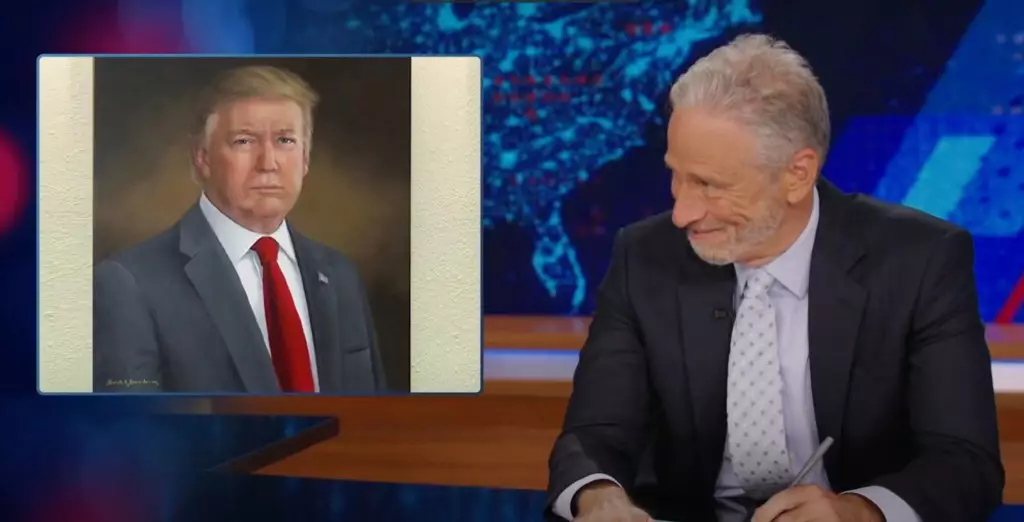Jon Stewart’s latest monologue on *The Daily Show* serves as a brilliant reminder of the sheer artistry involved in effective satire. By tackling current events and controversies, Stewart pushes boundaries while prompting audiences to examine the inconsistencies pervasive in modern politics. Particularly his comments about Secretary of Defense Pete Hegseth’s group chat blunder—where a supposed plan for military actions in Yemen slipped into the wrong hands—illustrate his knack for marrying humor with serious political commentary. With a sardonic quip like “Oopsie poopsie,” Stewart demonstrates his ability to address grave matters with levity, raising eyebrows while simultaneously shedding light on the absurdities of political missteps.
The Republican Party’s Dance with Free Speech
Stewart’s primary focus in his monologue centers on the Republican Party’s ironic relationship with free speech. He lays bare a hypocrisy that resonates strongly in today’s polarized climate. “These guys don’t give a f*ck about free speech,” he bluntly states, highlighting the inconsistencies between what political figures preach and how they behave. The phenomenon of cherry-picking free speech—supporting it when it aligns with their views and censoring it when it doesn’t—has become alarmingly common among politicians, particularly on the right. Stewart’s observations cut deep, questioning the sincerity of proclaimed beliefs and urging viewers to recognize the deeper truths lurking behind superficial rhetoric.
His analysis doesn’t shy away from the contradictions presented during the Trump administration. Donald Trump’s relentless attacks on media organizations that contradicted his narrative was a glaring example of the hypocrisy Stewart addresses. By illustrating how free speech is often weaponized, the West Wing becomes less about fair dialogue and more like a battleground where only the loudest voices flourish—voices that align with a specific ideology. Stewart’s humorous yet piercing remarks echo a growing sentiment that silencing dissent, while hypocritically professing the virtue of free speech, has become the norm rather than the exception.
Free Speech as a Political Tool
What makes Stewart’s critique particularly impactful is how he threads together personal anecdotes with broader implications about societal narratives. As he recalls Trump’s demand for the removal of an unflattering painting from the Colorado Capitol, a quintessentially “Trumpian” moment, it becomes evident how free speech has been manipulated into a mere tool of political expediency. This depiction of the political landscape, where superficial grievances can upend greater truths, is a stark indicator of the challenges facing free expression today.
Through his sharp humor and relentless questioning, Stewart nudges his audience to confront uncomfortable realities. The “thought police” rhetoric used by some Republicans during the Biden administration painted a somewhat ironic portrait when juxtaposed with contemporary policy proposals that aim to control discourse in myriad forms. His comedic take on the seriousness of these developments compels viewers to reconsider what they might take at face value.
The Cultural Reflection of Free Speech Hypocrisy
While Stewart’s conversations about free speech are undeniably critical, they also prompt a more complex dialogue about the current cultural landscape. The evocations of entertainment phenomena such as *The White Lotus* in Stewart’s monologue illustrate how intertwined politics and pop culture have become. The ironic juxtaposition of weighty political matters with cultural references resonates deeply, exemplifying how the regular public is moving through an increasingly convoluted reality where the lines between satire and fact blur.
The crux of Stewart’s discussion challenges the audience to remain vigilant in how they view free speech. As Americans revel in their rights, it’s essential to recognize that the ongoing battle is about more than law—it speaks to the essence of what it means to have an open discourse, undistorted by personal bias or political maneuvering. Both humorous and urgent, Stewart’s reflections encourage a broader examination of how we engage with free speech in this era, challenging us to remain aware.
In a world that often seems filled with contradictions, Jon Stewart’s insightful monologue encourages critical reflection on the very fabric of free speech itself—how it is defined, who gets to participate in the discussion, and what that means for the future of American discourse. His blend of humor and biting criticism serves as both a commentary and a call to action to reclaim the integrity of free speech for all.


Leave a Reply